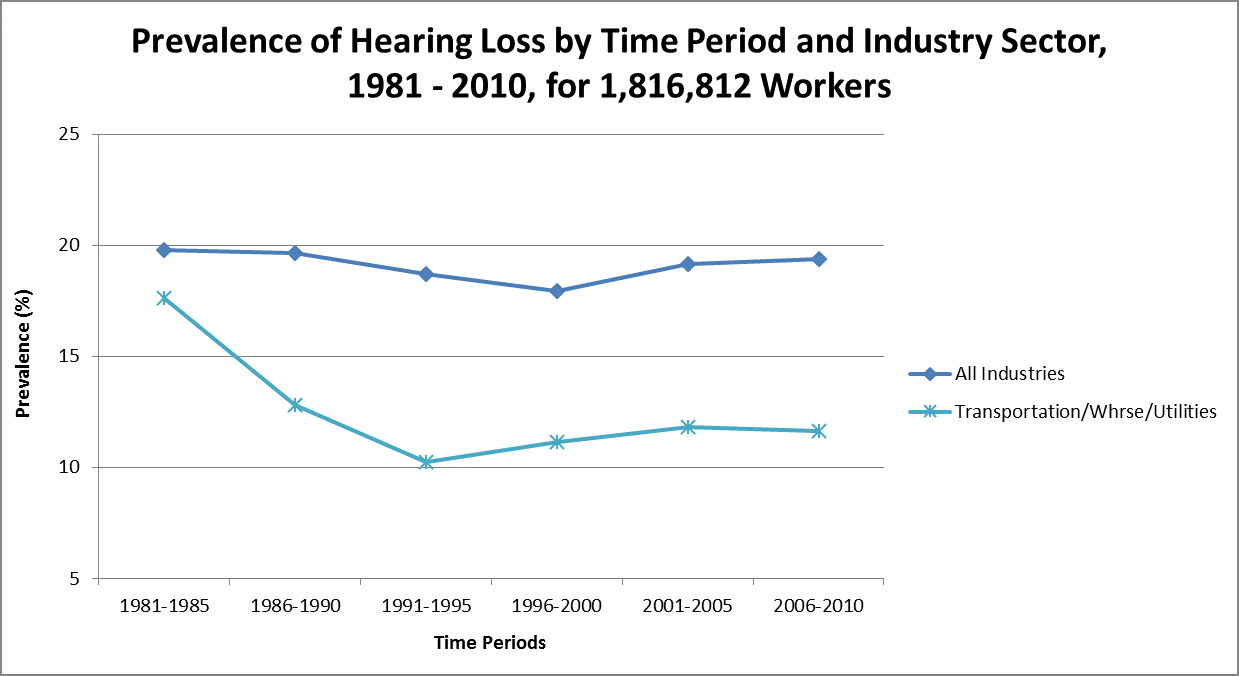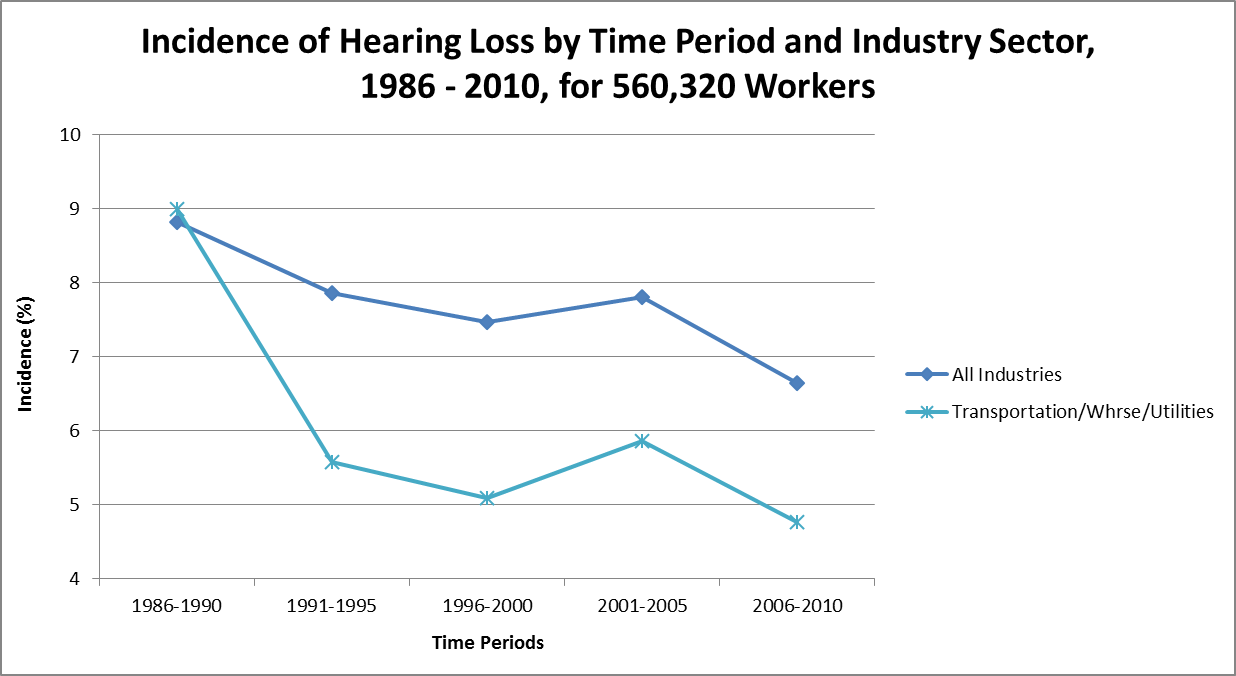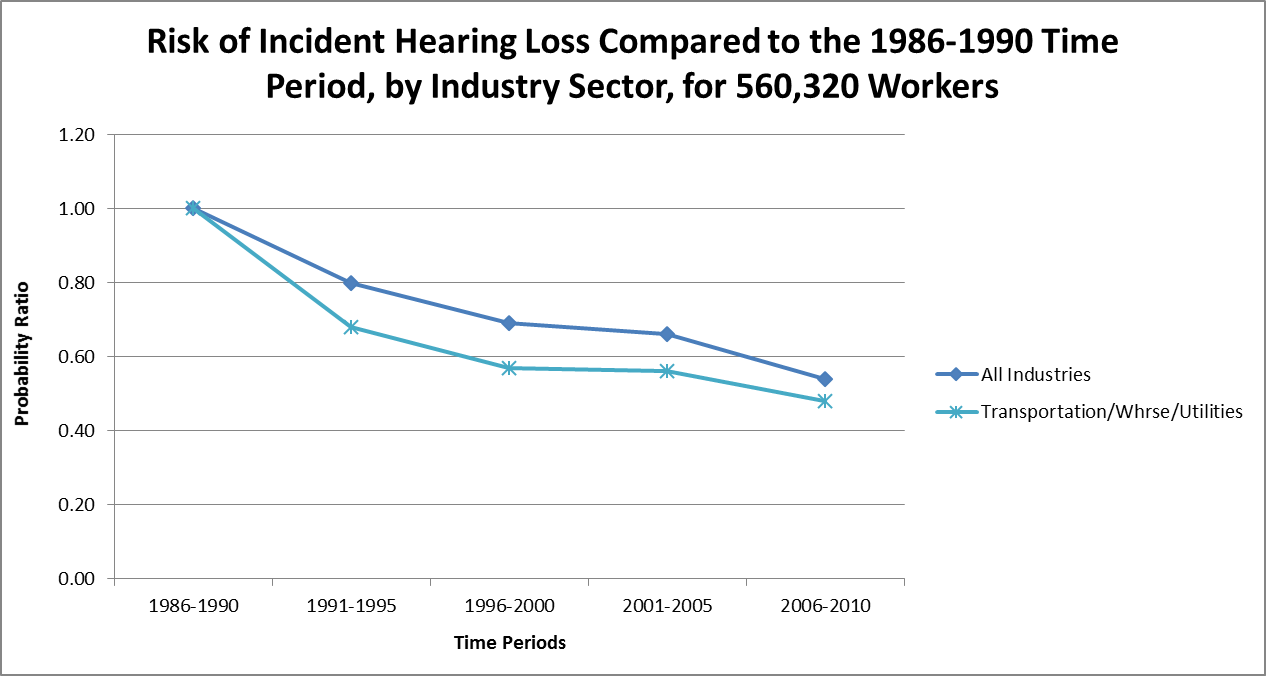At a glance
- View hearing loss statistics among Transportation, Warehousing and Utilities (TWU) workers.
- Approximately 13% of all Transportation and Warehousing workers and 27% of all Utilities workers have hearing difficulty.
- About 7% of all Transportation and Warehousing workers and 12% of all Utilities workers have tinnitus.
- 59% of noise-exposed Transportation and Warehousing workers and 38% of noise-exposed Utilities workers report not wearing hearing protection.

Hearing loss and tinnitus
- Approximately 13% of all Transportation and Warehousing workers and 27% of all Utilities workers have hearing difficulty.1
- About 7% of all Transportation and Warehousing workers and 12% of all Utilities workers have tinnitus.3
- About 12% of noise-exposed tested TWU workers and 25% of noise-exposed tested Utilities workers have a material hearing impairment45. Hearing impairment is hearing loss that impacts day-to-day activities.
- 8% of noise-exposed tested TWU workers have hearing impairment in both ears.6
Trends
Trends among noise-exposed tested TWU workers (1981-2010)4
- The prevalence for TWU decreased 6% over 30 years (1981-2010) as compared with a less than 1% reduction for all industries.
- The incidence for TWU decreased 4% over 25 years (1986-2010) as compared with a 2% reduction for all industries.
- The adjusted risk for TWU decreased 52% over 25 years (1986-2010) as compared with a 46% reduction for all industries.



Return to occupational hearing loss statistics
Go back to select another industry.
Content Source:
National Institute for Occupational Safety and Health
- Kerns E, Masterson EA, Themann CL, Calvert GM. (2018). Cardiovascular conditions, hearing difficulty and occupational noise exposure within U.S. industries and occupations. American Journal of Industrial Medicine, 61, 477-491.
- Green DR, Masterson EA, Themann CL. (2021). Prevalence of hearing protection device non-use among noise-exposed U.S. workers in 2007 and 2014. American Journal of Industrial Medicine, 64(12), 1002-1017.
- Masterson EA, Themann CL, Luckhaupt SE, Li J. & Calvert GM. (2016). Hearing difficulty and tinnitus among U.S. workers and non-workers in 2007. American Journal of Industrial Medicine, 59, 290-300.
- Masterson EA, Deddens JA, Themann CL, Bertke S. & Calvert GM. (2015). Trends in worker hearing loss by industry sector, 1981-2010. American Journal of Industrial Medicine, 58, 392-401.
- Masterson, EA, Themann, CL. (in press). Prevalence of hearing loss among noise-exposed U.S. workers within the Utilities sector, 2010-2019. Journal of Occupational and Environmental Medicine.
- Masterson EA, Bushnell PT, Themann CL, & Morata TC. (2016). Hearing impairment among noise-exposed workers — United States, 2003–2012. Morbidity and Mortality Weekly Report, 65(15), 389-394.
